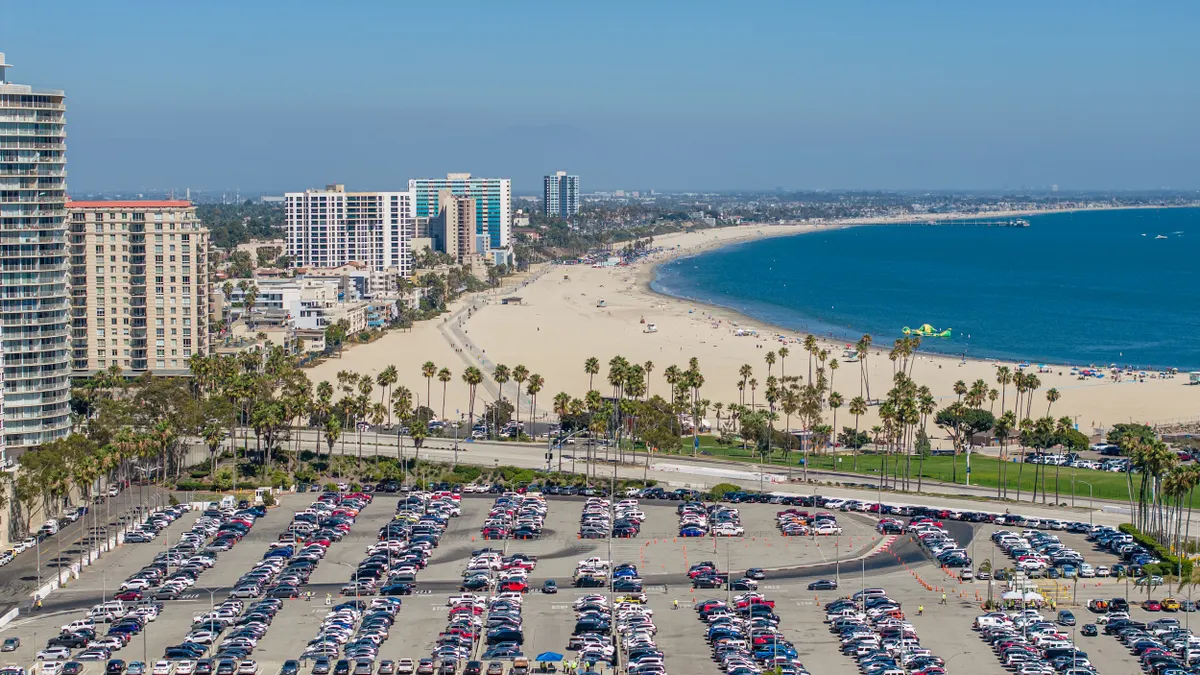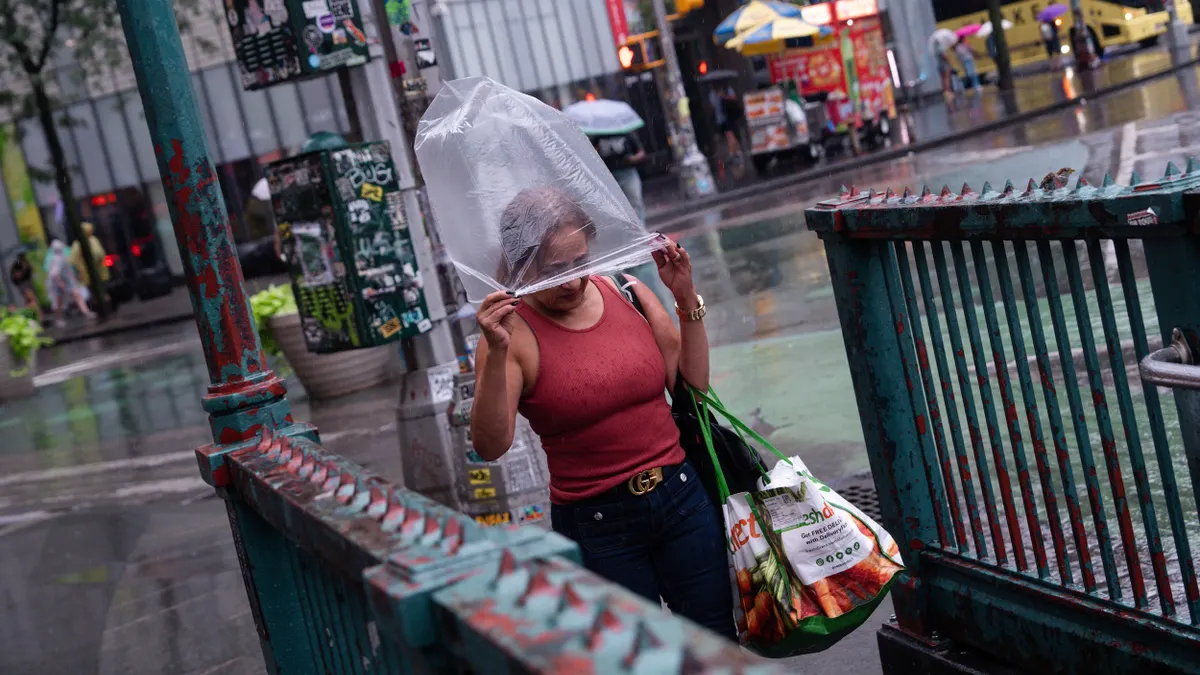This story has been updated to reflect changes with regulatory measures in Berlin and Boston.
Ten years ago, "bubble" was the buzzy housing term. Now, the hot term is "crisis."
While a bursting housing bubble shares many of the same aftereffects as a housing crisis, a crisis generally is more wide-reaching and has longer term impacts.
Housing crises are being identified or predicted in U.S. cities of all sizes, comprised largely of low supply and high costs. Denver, Salt Lake City, San Diego and Boston are among the cities taking action to stave off or reverse housing crises.
Some cities have implemented or are considering tighter regulations for online short-term rental providers, such as Airbnb and HomeAway, to prevent further reductions in housing capacity and affordability. Last fall, housing-strapped Paris put a 120-day cap on owners' yearly short-term rental allowances in four central neighborhoods, and in 2016, Berlin banned tourists from renting entire apartments through home-sharing sites to protect affordable housing. Late last month, Berlin's lawmakers eliminated the ban, and as of May 1, home owners must receive a permit allowing them to rent out primary residences on a short-term basis as much as they please, and secondary homes for up to 90 days each year.
A prime concern is that the success of such online marketplaces has made the idea of owning housing units solely to rent them to tourists more attractive than renting them to full-time residents. Short-term rentals typically provide more flexibility and garner higher prices than long-term, regardless of whether the short-term rentals are hotels or secured through online booking platforms.
But home-sharing businesses don't necessarily view cities' regulations as negative.
"We really sought to work with governments to regulate home-sharing, because we fundamentally believe that to be regulated is to be recognized as an internet platform that is allowing people to share their homes," said Christopher Nulty, Airbnb's Head of Public Affairs for the Americas. "We think the best way to... ensure that home-sharing is a long-term part of cities is to regulate it."
The practice of home-sharing actually has been around for a long time, but previously it had been conducted primarily through real estate brokers or one-on-one interactions between owners and renters. "Home-sharing via an internet platform is new, but home-sharing has been around... long before Airbnb, which was founded 10 years ago, was a thought in anyone’s mind," Nulty said. Municipal leaders agree. "Short-term rentals are certainly nothing new as far as issues being faced by the city. We’ve been dealing with this issue for years and years," said Jared Munster, New Orleans' director of safety and permits.
"We think the best way to... ensure that home-sharing is a long-term part of cities is to regulate it."

Christopher Nulty
Airbnb, Head of Public Affairs, Americas
The internet has been a game-changer, though. Home-sharing has gained more prominence and has spread into dozens of markets that previously wouldn't have been considered vacation home rental destinations. With more widespread use of a service sometimes comes unforeseen consequences, such as the current claims of home-sharing contributing to housing crises.
In January, Boston Mayor Martin Walsh introduced an ordinance to establish guidelines for tracking and regulating short-term rentals in an attempt to strike a balance between monopolizing the city's housing supply and allowing residents to benefit financially from renting their homes. "The commercialization of short-term rentals in residential dwellings and residential neighborhoods has the potential to reduce availability of long-term housing for owners and tenants alike, and is contrary to the Administration's goal of adding 53,000 units of housing across a variety of income levels by 2030,” said a press release from the mayor's office.
Mayor Walsh decided to withdraw this particular ordinance last month to give city staff more time to work out details, such as which technology to use for enforcement, but he reportedly plans to re-file similar legislation in the coming weeks with rules for capping short-term rentals.
The city’s research uncovered data indicating that the availability of short-term rental units has a direct correlation to housing costs, as evidenced by a 2016 University of Massachusetts Boston study that found a 0.4% increase in local rent prices due to increases in the number of Airbnb listings. That percentage could balloon as short-term rental platforms gain even more traction, and when taking into consideration other platforms besides just Airbnb.
New Orleans also regulated short-term rentals, in part through fees, following a 2016 planning commission study on the practice's citywide impact. The City Council ultimately "created this three-tiered licensing system with the accessory dwellings, the temporary [dwellings] and the commercial rentals, with a code-based regulation structure," said Munster. Basically, landlords must first receive a license from the city just to list a short-term rental property online. The rentals are outright banned in the French Quarter.
"If we find a listing online that you’re offering your property for nightly rentals on Airbnb or HomeAway, or any of these other sites, and you do not have a license, that’s a violation that goes back to the property owner," Munster said. The city wants to "regulate in way that is not overly complicated to the city [and]... to the public, but creates a very simple scenario: You’re either in compliance or you’re not."
The city worked directly with Airbnb to devise mutually agreeable regulations. "Seattle and New Orleans passed some of the most progressive rules last year, that we championed," said Nulty. "We worked really closely with the mayors and with the members of the city councils to come up with rules that are very specific to the cities. The rules in Seattle look really different than the rules in New Orleans, but both work really well for the cities, respectively."
The solution for New Orleans involved Airbnb voluntarily de-listing unlicensed properties on their site. The city has held more than 200 hearings for violations — ranging from unlicensed listings to posting rentals in the French Quarter — and has collected more than $270,000 in fines since regulations took effect last April.
Airbnb also worked with the city to "integrate their data system to our data system so there’s a live connection between the two," Munster said. "Their users can actually submit applications through Airbnb and that transmits directly into our permitting system. We process it and transmit the response back through Airbnb to validate the listings on their website."
Last month, the New Orleans City Council asked the planning commission to conduct another home-sharing study, this one to examine the short-term rental regulations' implementation, effectiveness and any recommended policy changes. The permitting department will continue enforcing the current laws while waiting to learn the results of the study and whether the City Council will make changes, such as suggested limits on how many units can be rented short-term in one building. "We’re going to continue being creative in how we implement the regulations, whatever they may be. We’re hoping to continue our successes into the future," Munster said.
Likewise, Airbnb wishes to continue working with cities to implement regulations of best fit for their local housing needs. "One of the things we think a lot about, given how different housing stock is in every place, is really what works best there," Nulty said. "We're really proud of what we were able to work on in New Orleans... [It serves] as a national and international model for the right approach to regulate home-sharing."


















